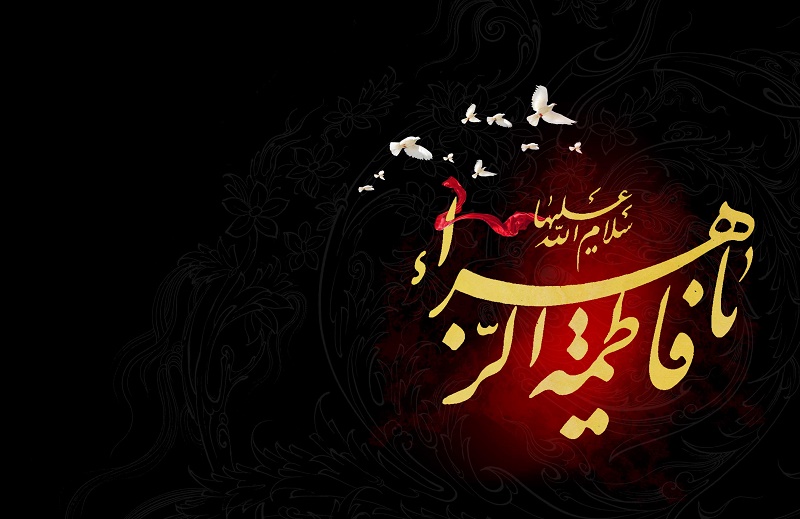One of the sorrowful events of the Muslim history is the martyrdom of Lady Fatimah al-Zahraa (a.s) at a young age. She was buried at night to signify her deprivation of her right for the people to come.

Lady Fatimah was the only daughter of the Holy Prophet and Lady Khadijah. The circumstances of her birth are described by Lady Khadijah as follows: At the time of the birth of Lady Fatimah, I sent for my neighboring Qurayshite women to assist me. They flatly refused, saying that I had betrayed them by supporting Muhammad. I was perturbed for a while, when, to my great surprise, I sighted four strange tall women with halos around them, approaching me. Finding me dismayed, one of them addressed methus, "O Khadijah! I am Sarah, the mother of Ishaq, and the other three are, Mary the mother of Christ, Asiyah the daughter of Muzahim, and Umm Kulthum, the sister of Moses. We have all been commanded by God to put our nursing knowledge at your disposal."[1] Lady Fatimah inherited the genius and wisdom, the determination and will-power, the piety and sanctity, the generosity and benevolence, the devotion and worship of Allah, the self-sacrifice and hospitality, the forbearance and patience, and the knowledge and nobility of disposition of her illustrious father, both in words and deeds. "I often witnessed my mother," says Imam Husayn, "absorbed in prayer from dusk to dawn."[2] Her generosity and compassion for the poor was such that no destitute or beggar ever returned from her door unattended.
The death of the Holy Prophet affected her very much and she was very sad and grief-stricken and wept her heart out crying all the time. She was confronted, after the demise of her father, with the hardships her husband Imam Ali went through, and the usurpation of her inheritance, the Fadak. Throughout her life, she never spoke to those who had oppressed her and deprived her of her rightful claims. She requested that her oppressors should be kept away even from attending her funeral. Having been oppressed and stricken with grief, which crossed all limits of forbearance and endurance, she expressed her sorrows in an elegy composed by herself to mourn her father the Holy Prophet. A couplet of the elegy, with particular reference to her woeful plight, she expressed thus: O my father! After your death I was subjected to such tortures and tyranny that if they had been inflicted on the `Day', it would have turned into `Night'.[3] Lady Fatimah did not survive more than seventy-five days after the demise of her father. She breathed her last on the 14th Jumdi'1-ula 11 AH. Before her demise she bequeathed the following as her will to Imam `Ali:
1. O Ali, you will personally perform my funeral rites.
2. Those who have displeased me should not be allowed to attend my funeral.
3. My corpse should be carried to the graveyard at night.[4]
Thus Imam `Ali, in compliance with her will, performed all the funeral rites and accompanied exclusively by her relatives and sons carried her at night during where she was laid to rest and her wishes fulfilled.
Footnotes:
1. Al-Amali, Shaykh Saduq, p. 594.
2. Source not found.
3. Bihar al-Anwar, V. 79. p. 106.
4. I'lamu al-Wara bi A'lami al-Huda, Fadl ibn Hasan al-Tabarsi, p. 152.
Source: https://secure.imam-us.org/news/martyrdom-lady-fatima-al-zahraa-pbuh-143...



